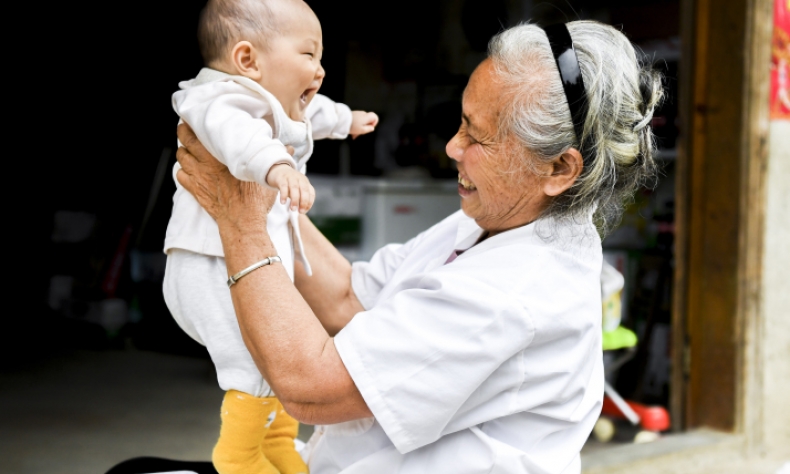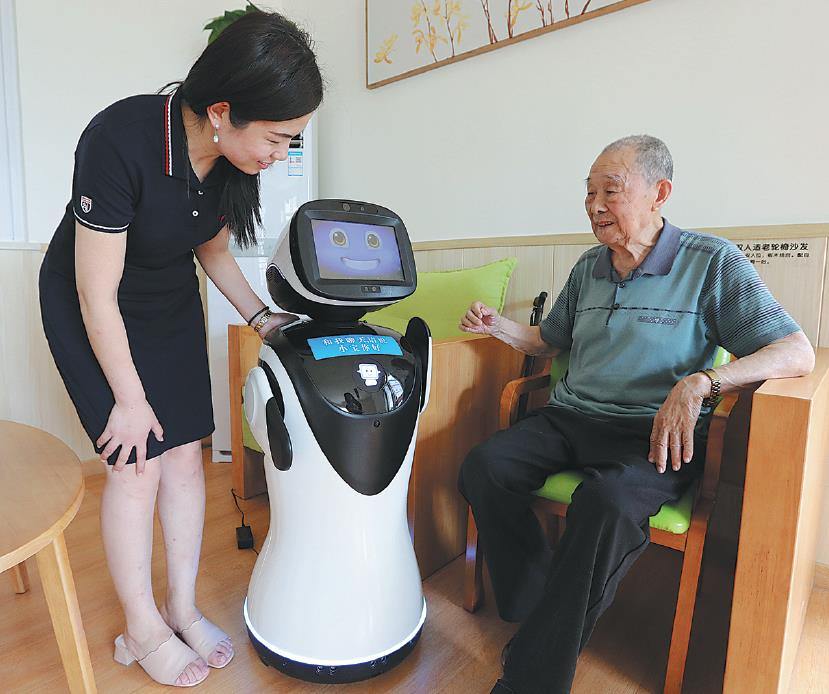Active Aging

Western countries have already developed a mature social system to tackle the side effects of an aging population, but there is little for China to copy due to fundamental differences in traditions and national conditions.
The reality of China’s rapidly graying population has prompted the Central Government to come up with active strategies and plans to tackle the social challenges that loom. On December 9, 2021, the Central Committee of the Communist Party of China and the State Council jointly issued a guideline to address the aging of the country’s populace, highlighting the importance of older adults remaining physically active and adopting a healthy lifestyle.
According to the seventh national census released by the National Bureau of Statistics in May 2021, the population aged 60 and above accounted for 18.70 percent of the country’s total (65 and above accounted for 13.5 percent of the total), a growth of 5.44 percentage points compared with 2010. The country will see an even more rapid growth of its graying populace and a significant transition in the population age structure from 2023 onward, as about 10 million people will join the elderly segment of society every year. In fact, senior citizens are likely to account for 29.1 percent of China’s total population in 2036.
In the words of the guideline, a person’s golden years still mark an important stage in one’s lifetime. People’s abilities to make progress and achieve success are not always subject to age. Society by large thus needs to adopt an active attitude toward both the aging process as well as its senior citizens. To effectively tackle the graying issue, it’s important to improve the quality of life for the elderly, including their pride, rights and interests, for the sake of social harmony. A healthy aging process demands comprehensive and systematic intervention on the part of the government. Moreover, it requires the adjustments of all factors that may affect senior health by establishing a favorable social atmosphere and physical environment, to ensure their overall wellbeing.

How society treats its youngest and oldest members is a crucial gauge for its levels of civilization. “Respect the elderly and cherish the young” is an ancient Chinese virtue. Nevertheless, this virtue alone cannot guarantee a decent life for all seniors within a rapidly aging modern society, where science and technology advance with each passing day and the elderly find themselves slow to accept and acquire innovation. The silver generation today needs a methodical and ideological mechanism to help them cope with the ever-changing realities of day-to-day life.
Traditionally, most elderly citizens are taken care of at home, while a small number of them are sent to nursing homes. In most cases, they have their own houses and can live a relatively unbothered life. However, as the graying of the population has begun to pick up speed, various new problems pop up. More and more seniors are left home alone, mostly in rural areas, as their children venture out to the cities in pursuit of more job opportunities. Then there’s a growing number of old people beginning to suffer from chronic diseases, as well as the fact that digitalization is complicating life for many of them. In this context, the concept of “an active attitude toward aging” is the best strategy to manage the issues that are becoming more visible by the year.
Western countries have already developed a mature social system to tackle the side effects of an aging population, but there is little for China to copy due to fundamental differences in traditions and national conditions. According to the guideline, the Chinese Government and society by large have to jointly put senior health first, while, at the same time, business opportunities for and various resources of this age group will be given full rein so that senior citizens across the nation can live longer and happier lives in a modern society.
As an ancient Chinese sage once said, “Old age, believe me, is a good and pleasant thing. It is true you are gently shouldered off the stage, but then you are given such a comfortable front stall as spectator.” With age, comes wisdom.
 Facebook
Facebook
 Twitter
Twitter
 Linkedin
Linkedin
 Google +
Google +










